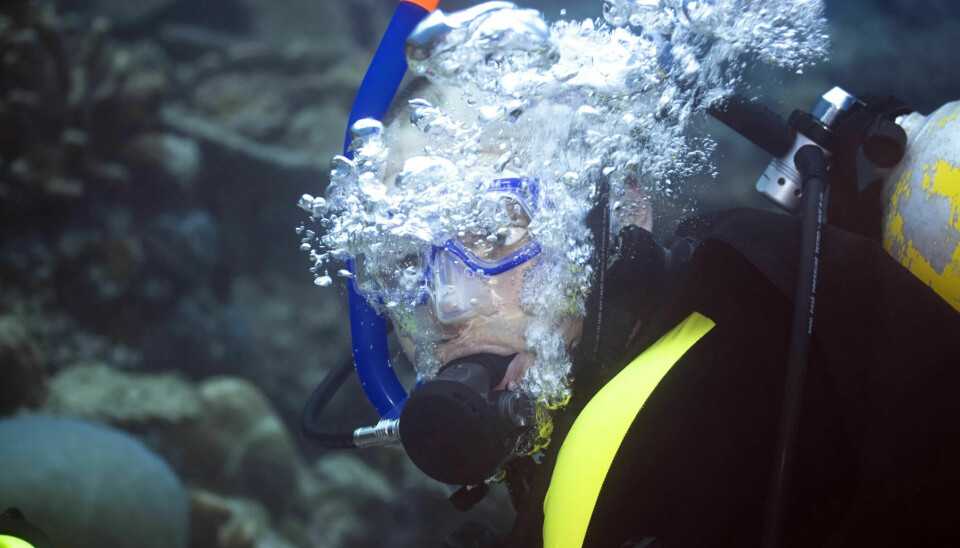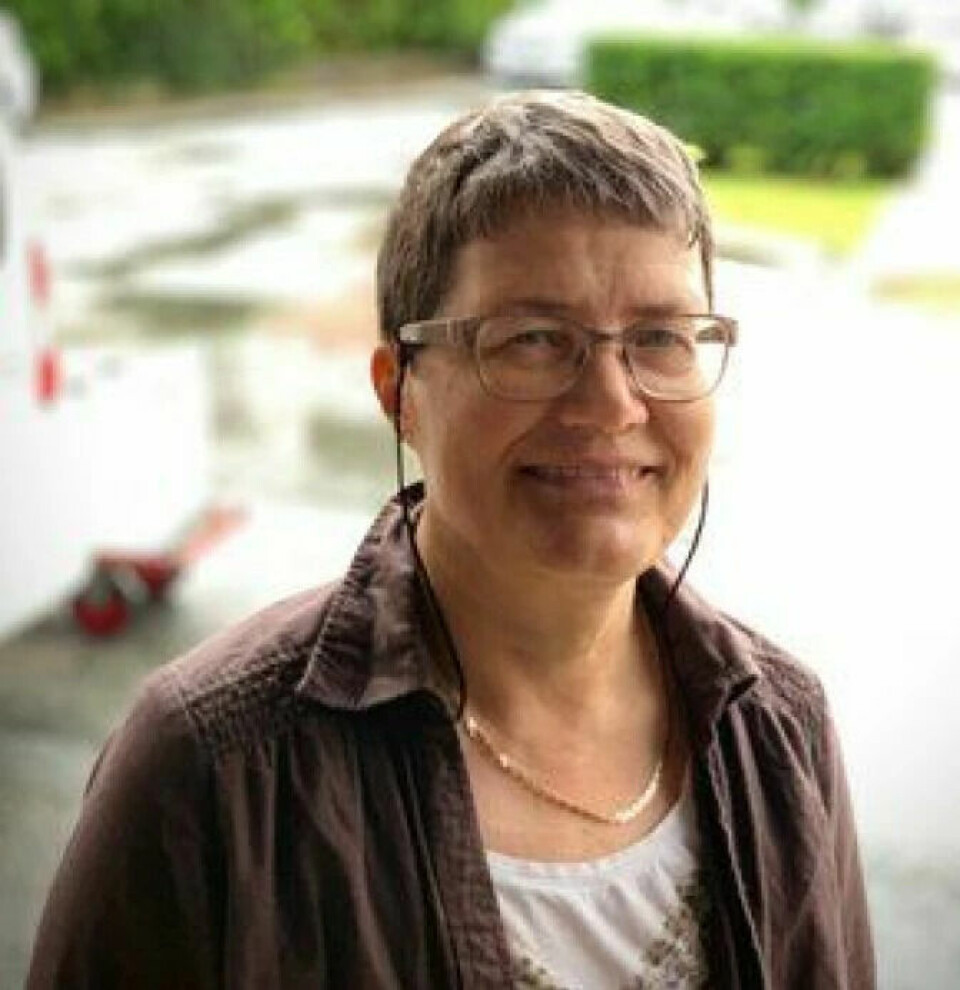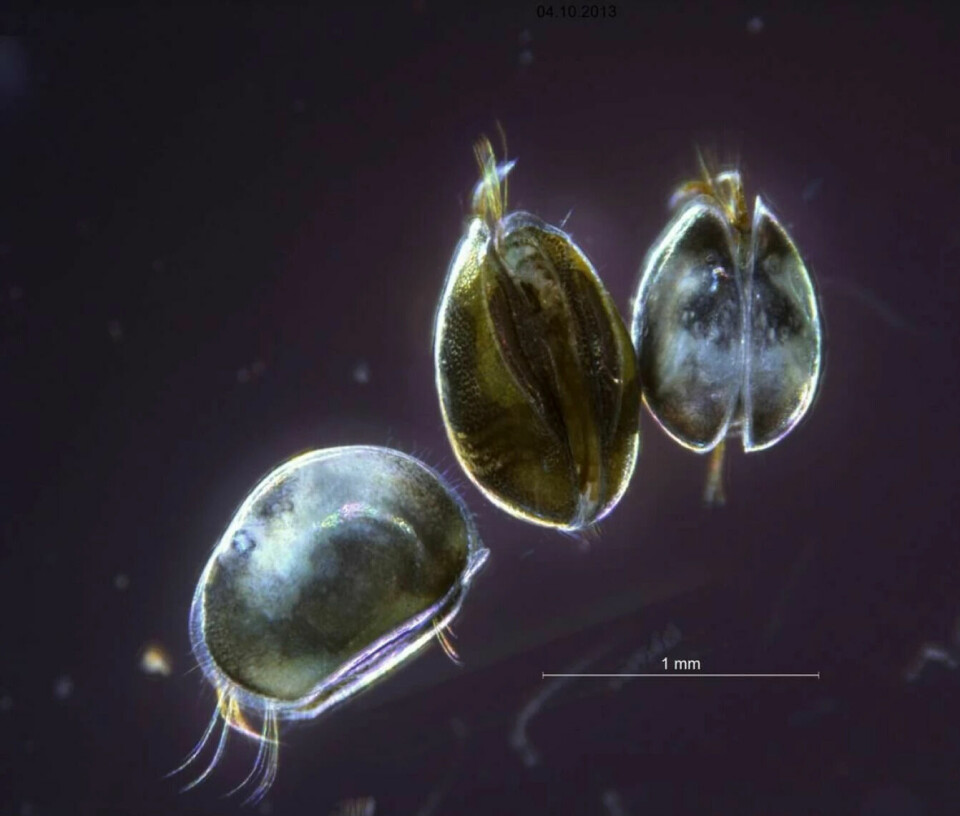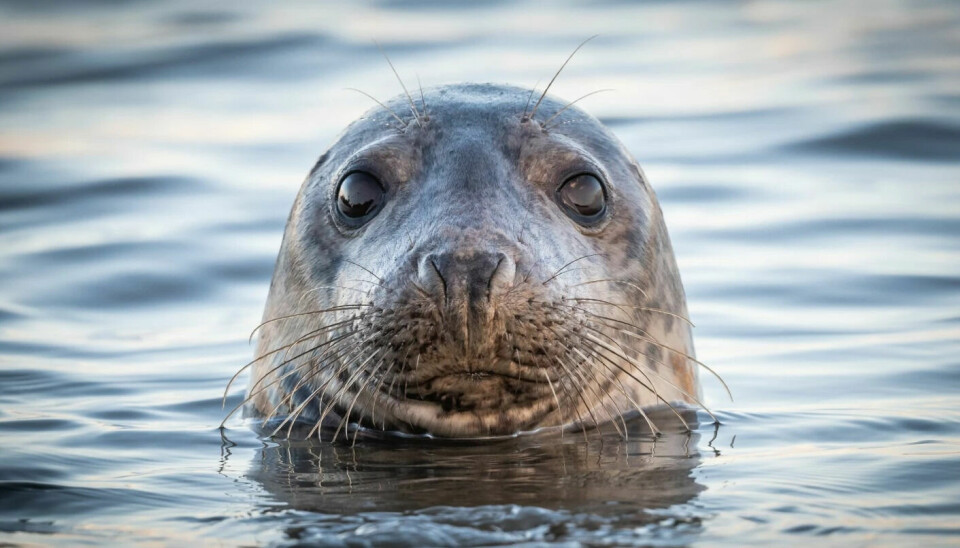
Only 5 per cent of the ocean has been explored
“I am certain that there is life in every drop,” a researcher says.
Imagine that the Earth is a house.
You enter the hallway and peek into the kitchen.

You want to explore further, but the doors are locked.
Is there a living room, and what is in it? Can you go down into a basement and up into an attic? Does anyone live there?
Without a key, we can only catch a glimpse through the keyhole. In a similar way, that is how our planet is.
Can't hear voices underwater
For a whopping 70 per cent of the Earth is covered by ocean, and only 5 per cent has been explored by us humans.
It is, therefore, a vast and blue mystery.
“The life in the ocean is what I am most curious about,” researcher Gro van der Meeren says.
She believes that there are species with characteristics we can't even imagine.
“We humans, for example, have limited hearing,” she says.
There are, for instance, bats and primates on land that produce sounds we cannot hear.
“This same goes for underwater,” she says.
Just a distant audience
“Why do we know so little about the ocean?”
“We humans can only stay underwater for a limited time. In essence, we are just a distant audience,” van der Meeren says.
She says that we must continue to study the ocean.
“To preserve the ocean in the best way, we need to learn about it. The ocean needs consideration,” she says.
But even with pollution and contamination, the ocean will continue to surge and ripple.
“It is us humans who cannot live on Earth without the ocean providing what we need,” she says.
The ocean gives us food, medicines, and transportation routes.

Survived five extinctions
“Are there species in the depths of the ocean that survived the dinosaur era?”
“Yes, there are several. The ostracod, or so-called seed shrimp, has survived five mass extinctions, including the one where the dinosaurs became extinct,” she says.
“What sizes do you think the undiscovered species could be?”
“Since we have technology that can create images from the depths for us, we are quite adept at finding large animals,” she says. “In the vast depths of the ocean, there are probably still some large animals that are unknown to us.”
Similar traits to us?
“Can we find species that resemble humans?”
“There is a slim chance of finding anything that closely resembles us,” van der Meeren says.
But seals and toothed whales bear some resemblance.
“They have large brains, their own languages and dialects. They are also good at learning things,” she says.
The octopus is very different from us, but it also has some similarities.
“They have good vision and dream while they sleep. They plan, play, and are curious,” the researcher says.

A brain in each arm
In addition to astonishing similarities, the octopus also has unique characteristics.
“They have a brain in each of their arms and a main brain,” van der Meeren says.
And their arms can grow back if they are eaten by predators.
Octopuses can change shape and colour but only live for a few years.
“They die when their offspring hatch. I'm glad we don't share that with octopuses,” she says.

Foul-smelling creatures where everything else dies
When you gaze out over the ocean, it is fascinating to think that there is life in every single drop.
“I believe that holds true in the depths as well,” the researcher says.
Even where there is no oxygen in the water and everything else dies.
There, foul-smelling bacteria can survive on sulphur.
“In the deep ocean, there must be thousands of undiscovered species,” she says.
How do they coexist? What do they think about? What do they eat, and how many offspring do they have?
“We just have to continue researching the ocean,” van der Meeren says.
———
Translated by Alette Bjordal Gjellesvik.
Read the Norwegian version of this article on ung.forskning.no
































